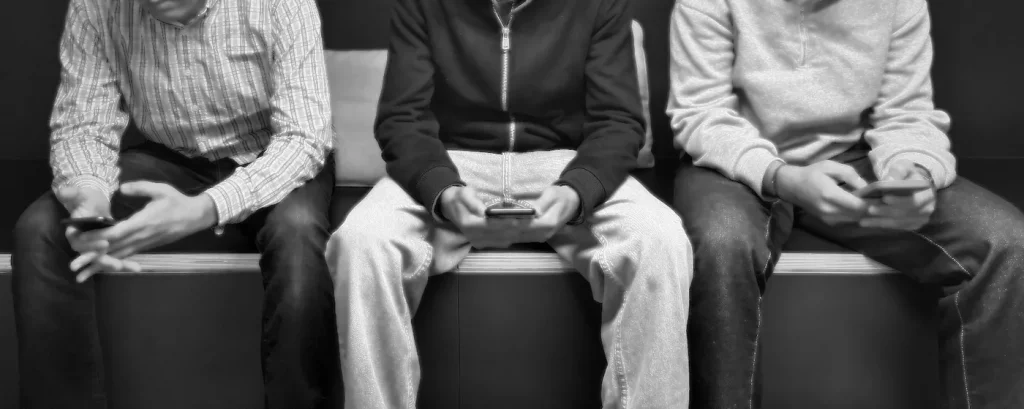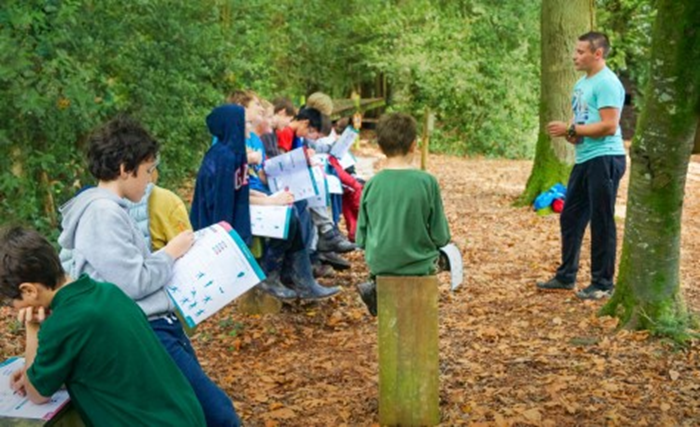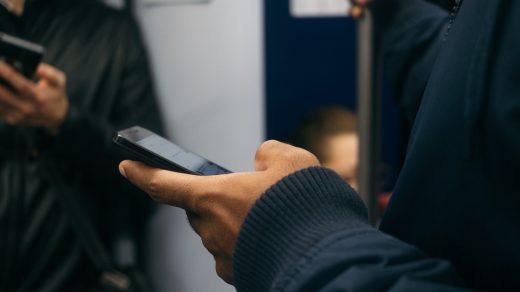The more I interact with people, mostly younger than me, the more I keep asking myself: Do I really fit into this digital world?
I’m quite sure that I don’t fit in at all. I’m the kind of person who enjoys human interaction, nature, and open spaces. So why should I try to belong to something that doesn’t feel like me, something that seems imposed by society? When I look at my Instagram page, there’s nothing that truly represents who I am. How can a picture possibly express that? I don’t understand the constant need to show, to post, to pretend—to be someone we’re not. For what purpose? Just to avoid feeling left behind or like outsiders?

Last week, I had an interesting conversation with a friend about this topic. We both agreed that social media pushes us to be something different from reality, and that our true selves often don’t meet the expectations it creates. This makes us feel like “outsiders,” torn between the desire to be authentic and the fear of not fitting into society. The more we talked, the more we realized that not only do we not belong to this digital world, but we also don’t want to.
By comparing ourselves with our friends and observing their behavior, we concluded that the constant need to show and share often comes from personal insecurity, one that feeds a vicious cycle of social dependence. Most of the time, those same friends talk about the latest trends we know nothing about. Of course, this makes us feel excluded. So many interactions today are based on TikTok trends or Instagram photos. For them, it’s fascinating, they can spend hours discussing it. But we wondered: Are we actually interested in this? Or do we seek something deeper from life?

We prefer exploring the world, learning about different cultures, engaging in real human interaction, and discussing geopolitics. We don’t really care about TikTok trends. So yes, I can consider myself an outsider in this digital world. But what’s sad is that as technology advances, we may have no choice. Social media is now part of everyday life—either we keep up, or we risk being cut off from society.
It’s ironic that while humans created technology to improve our lives, we now live in a society where the most discussed topics are media trends rather than how political decisions are shaping our futures. Following this line of thought, I remain hopeful that future generations will recognize the dangers of social media addiction, for both mental health and society as a whole, and will take action to prevent further harm.



I totally agree with you. Every generation has people who kind of get left behind by new trends — and I guess I’m one of them now. I don’t post pictures on social media, and I’m not into TikTok or short videos at all. So when everyone talks about the latest internet celebrities, I usually have no idea who they’re talking about. I was regarded as someone outdated. But still, it’s totally a personal choice. I don’t like being pushed to follow whatever everyone else is following. I enjoy sitting alone, reading a book, or just watching the sky and enjoying nature. I admire your courage to stay true to yourself and be an outsider in today’s world. You’re not alone. Everyone lives life in their own way, and your way is just as valid as anyone else’s.
I understand where you are coming from. I have to say that social media in itself is not a horrible thing. You never have to fit into a space, even if it’s digital. You have people around you who have the same opinion as you, and that’s what matters. I think what is important is the way you treat social media and your primary use of it. I am still posting and consuming social media, but my posting is very different from the majority of the content on social media. I do not post for views, for fame, or for likes. I post for myself and my friends. Living abroad, sharing my life in this way, is the only way I can feel I am truly sharing my life with them. I casual post. I post stupid photo dumbs and all in between. I treat my Instagram as a curated album of my memories that I have the pleasure of sharing with my friends and with the users who care to tune into my Instagram.
I relate to this comment in a way – and then also not, but that pretty much sums up how I personally do ponder between being “radically offline” and – agreeing with what @TeddyBear says – holding onto worldwide connections (sometimes friendships) that wouldn’t last if it wasn’t for the internet and the fact that the “real world” does right now do so often happen in or does at least spill over into the offline one.
Blessing and a curse kind of situation.
Over the course of our seminar I once again experienced this sense of being torn between the two “extremes”, but I want to maybe come to terms with the possibility of not treating this so existentially.
As in, I might spend a weekend hiking all day long without ever checking my phone, and still post a nice picture of it afterwards. Or I can highly value handmade crafts and still get inspiration while scrolling on Pinterest.
I absolutely agree with you that the “how” here matters more and that it clearly is of high importance right now to recognise and tackle the dangers of social media, especially for children. I will however try to allow myself to enjoy the positive aspects of the online world while keeping my feet and spirit in the offline presence.